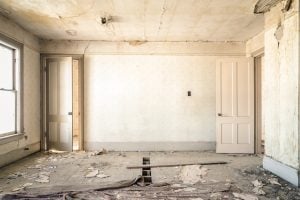How To Increase The Value of Your Home Before You Put It on The Market

Looking to maximize the sale price of your home in the UK?
In the competitive housing market, presenting your home at its best can make a substantial difference in its valuation and the speed at which it sells. Whether you’re planning to sell imminently or simply considering your options for the future, certain enhancements and well-planned upgrades can significantly elevate your property’s market value.
From minor cosmetic tweaks that enhance curb appeal to more substantial renovations that appeal to today’s buyers, this article delves into a range of strategies designed to boost your home’s worth.
We’ll guide you through actionable steps and insider tips to ensure your property attracts potential buyers and secures the best possible sale price when you decide to put it on the market.
Address any structural problems
The first step towards increasing the value of your home is identifying and remedying any structural issues.
These may include:
- A leaking or sagging roof
- Cracks to the walls
- Rising damp
- Missing or broken roof tiles
What adds value to a house is its functionality so before you tackle any cosmetic improvements or redesigns, make sure all major structural problems are dealt with.
Window replacement
Window replacements can be expensive but they’re also what adds value to a house. Double-glazing is considered today’s standard for most buyers unless the building is in a Conservation Area.
With a return on investment (ROI) of 74.3%, vinyl window replacements are what add the most value to a house. If you decide to move forward with wood, you will still realise a quite significant, though somewhat lower ROI of 69.5%.
Makeovers
If you’re wondering what adds the most value to a house, the answer is unanimous: kitchen and bathroom remodels.
According to HomeAdvisor’s annual True Cost report, most millennials compromise with the state and condition of their first homes, often buying old buildings in need of repair.
This, combined with the fact that most people perceive bathroom and kitchen upgrades as having the most impact on a home’s resale value, explains why these projects have the highest ROIs.
A kitchen upgrade will cost you around £35,000, and add around £20,000 value to your home, which puts its ROI at 57%. A full remodel may be more expensive but its ROI will be around 62-65%.
Bathroom remodels generally yield better ROIs. As a starter, ensure your bathrooms are fresh and hygienic looking, then add value with a touch of luxury.
Adequate lighting and nice, neutral light shades add the most value to a house’s bathroom.
To add light, all you need to do is replace a single pendant with a triple halogen spotlight unit – the cost of the upgrade is below £10 but it will immediately brighten up your space and add value to your home.
Consider small, impactful upgrades such as :
- Clean and hygienic flooring
- A mirror or two to expand and brighten the space
- A heated towel rail
Adding an extra bathroom can also greatly increase the value of your home. Typically, the extra room will boost your home’s value by 5%, which could translate into an additional £15,000 on the average home.
Buyers are increasingly looking for more comfort and simplicity so an en-suite bathroom can add even more value to your home.
Don’t invest too much into tiles and taps; go for affordable quality rather than luxury and opulence – it’s what adds the most value to a house.
Garden appeal
Outdoor space is limited especially in the UK’s biggest cities. A well-designed deck can add up to 10% value to your home as it extends a buyer’s perception of the amount of usable living space.
According to experts, adding a wooden deck can lead to an 82.8% return on investment.
In terms of landscaping, the smartest upgrade is planting native trees – it raises the value of your home and the neighbouring homes while reducing your energy costs by as much as 50%.
Consider adding fences to enhance the feeling of privacy and seclusion.
Improve energy efficiency
Buyers are increasingly drawn to homes that promise lower energy bills, a smaller carbon footprint, and enhanced comfort. Upgrading your home with energy-efficient improvements can therefore be a smart move to increase its market value.
Simple upgrades like installing a new, more efficient boiler, adding double or triple-glazed windows, and improving insulation in walls, lofts, and floors can make a considerable difference. These improvements contribute to a warmer, more comfortable home and appeal to environmentally conscious buyers.
Installing smart home technologies, such as programmable thermostats, LED lighting, and solar panels, can further enhance your home’s energy efficiency and attractiveness on the market.
The government’s Green Homes Grant scheme also offers opportunities to fund these improvements, making it an opportune time to invest in energy efficiency. Presenting potential buyers with evidence of reduced energy bills, improved EPC (Energy Performance Certificate) ratings, and any green energy incentives your home qualifies for can increase its perceived value.
Investing in energy efficiency meets current market demands and sets your property apart, potentially leading to a quicker sale and a higher selling price.
Conversions
Conversions can be expensive but they are also what adds value to a house. Transforming your cellar into a living or storage space can add up to 30% more value to your home.
Converting a garage into a living space yields 15% ROIs, especially if you already have a parking space outside.
However, make sure you have the necessary planning permission if needed.
Small changes – big results
Often, what adds the most value to a house isn’t a full remodel but a series of small upgrades. A well-done painting job doesn’t need to break the bank but can greatly enhance the value of your home.
Whether your home is stucco, wood, brick or anything else, having it repainted can result in a 112% return on investment in many markets.
The exterior of your property is the first thing a potential buyer sees, and a fresh coat of paint can go a long way towards increasing the perceived value of the property.
According to Consumer Reports, repainting the exterior can increase the value of your home by 2-5% – go with lighter shades to make your home appear larger.
It’s also a good idea to have a weatherproof exterior wall coating – it may cost you around £5,000 but the upgrade can add between £7,000 and £9,000 to the value of your home.
Another small upgrade that adds value is the siding replacement. Mid-range homes with siding replacements usually see ROIs of 76-78%.
If you’ve decided against converting your garage into a living space, give it a cosmetic lift by replacing the garage door – the upgrade brings homeowners an ROI of 98.3%.
If you’re planning on selling your house, it may be worth considering what improvements and home remodel you can make to increase the value of your property before it hits the market.
Follow these tips to figure out what adds the most value to a house and turn your home into a profitable investment!
Checklist
Before you list your home on the market, consider these key improvements to enhance its value:
- Structural Integrity: Ensure all major structural issues are addressed, including roof repairs, wall cracks, and damp treatment
- Window Replacement: Upgrade to double-glazing or, if applicable, maintain the character in conservation areas with appropriate materials
- Kitchen and Bathroom Remodels: Modernize these essential spaces with functional and stylish upgrades, keeping ROI in mind
- Energy Efficiency: Invest in energy-saving improvements such as a new boiler, insulation, and smart home technology to attract eco-conscious buyers
- Garden Appeal: Enhance outdoor living space with decking or landscaping and consider adding privacy features like fences
- Conversion Projects: Assess the feasibility of converting lofts, cellars, or garages into living spaces for substantial value addition
- Paint and Cosmetic Upgrades: A fresh coat of paint and minor cosmetic touches can significantly improve curb appeal and interior freshness
- Lighting Upgrades: Replace outdated fixtures with bright, energy-efficient lighting solutions to brighten up spaces
- Flooring: Ensure flooring is clean, modern, and appealing; consider replacing carpets or polishing hardwood floors
- Declutter and Deep Clean: A clutter-free and clean home appears larger and more inviting, making a strong first impression on buyers
Prioritize these improvements based on your budget, the current state of your property, and the potential return on investment. Even small upgrades can make a big difference in how quickly your home sells and how much you get for it.
